Faculty Fellows
Faculty Fellows
Fall 2025
-
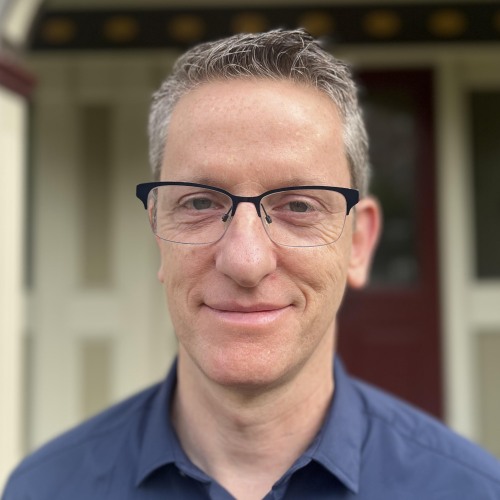
Dana Gooley
Fall 2025 Faculty Fellow, Professor of MusicDana Gooley is a musicologist and Professor of Music at Brown University, where he teaches courses on the history of jazz, classical music, improvisation, and musical theater. He has published two books: The Virtuoso Liszt (Cambridge University Press, 2004), a study of Franz Liszt’s concert career in historical context, and Fantasies of Improvisation: Free Playing in Nineteenth Century Music (Oxford University Press, 2018), which reconstructs free improvisational practices and fantasies in 19th-century European music. He has published articles on music criticism, cosmopolitanism, jazz, opera, and Stephen Sondheim. He is currently completing a book on Art Blakey’s historic album Moanin’. As a faculty fellow at the Cogut Institute, he will be writing his book “The Theater of Musical Performance,” which draws on performance studies and music history to examine the conventions underlying concert “staging.”
-
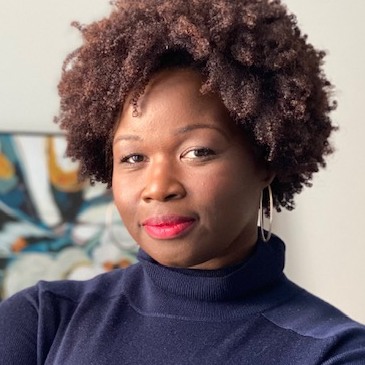
Ainsley LeSure
Fall 2025 Faculty Fellow, Assistant Professor of Political Science, Assistant Professor of Africana StudiesAinsley LeSure is Richard and Edna Salomon Assistant Professor of Political Science and Assistant Professor of Africana Studies. She specializes in political theory with a particular focus on the critical theory of race and racism, phenomenology, democratic theory, and feminist theory. Her first book project, “Locating Racism in the World,” develops a phenomenological theory of antiblack racism as a reality-violating common sense, generated and perfected through racist practices that produce a white, antiblack world. This project critically engages post-Civil Rights understandings of antiblack racism and Black studies’ recent pessimism about politics as an effective means to pursue black freedom. At the Cogut Institute, she will be working on a second book manuscript, “The Tricky Business of the Human Question,” which explores the possibilities of universal humanism as a political and ethical aspiration by disentangling it from its assumed antiblackness. The project does this by critically engaging nearly 30 years of scholarship generated by contemporary critical theorists of performance, film, aesthetics, and literary criticism in black studies who trace their mandate back to Frantz Fanon, Hortense Spillers, and Sylvia Wynter, and by exploring the relationship between black studies and Western political thought.
-
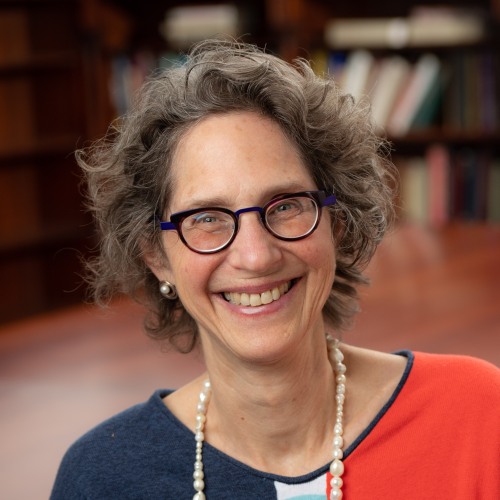
Amy Remensnyder
Fall 2025 Faculty Fellow, Giancarlo Family Provost's Professor of HistoryAmy G. Remensnyder is Giancarlo Family Provost’s Professor of History at Brown University and a Fellow of the Medieval Academy of America. A medieval historian, she focused on southern French monastic culture and collective memory in her first book. She then retrained herself as an Iberianist and published a book that spanned the Atlantic, placing medieval Iberia in dialogue with colonial Mexico by exploring the Virgin Mary as a symbol of conquest and conversion. A practitioner of engaged scholarship and teaching, she is a co-editor of the volume Why the Middle Ages Matter: Medieval Light on Modern Injustice (Routledge, 2021) and founder and director of the Brown History Education Prison Project. She is also a co-editor of the Oxford Series in the New Medieval History. At the Cogut Institute, she will be working on her current book project: a maritime microhistory that explores the tiny, remote, central Mediterranean island of Lampedusa between 1550 and 1750 to map a new blue, deserted island-centric history from below of early modern Mediterranean piracy, slavery, shared religious sites, and the sea of danger that produced them all. She received her Ph.D. from the University of California at Berkeley and her B.A. from Harvard University.
Spring 2026
-
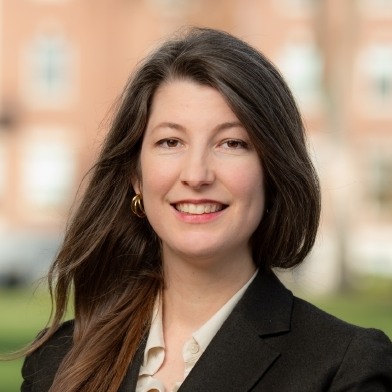
Christelle Alvarez
Spring 2026 Faculty Fellow, Assistant Professor of Egyptology and AssyriologyChristelle Alvarez is Assistant Professor of Egyptology. Her research focuses on ancient Egyptian philology, epigraphy, ritual beliefs and practices, and the socio-historical context of the third millennium BCE. While in residence at the Cogut Institute, she will complete her book, “Inscribing the Pyramid of King Qakare Ibi: Knowledge Transfer and Scribal Practice in Late Old Kingdom Egypt (c. 2350–2150 BCE).” This project investigates the dynamics of knowledge transmission, scribal tradition, and social change during a time of political and environmental upheaval, using Egypt’s last known inscribed pyramid as a central case study. She will also begin developing her second major project, which explores the construction and circulation of knowledge in relation to societal transformation in third-millennium BCE Egypt. A member of the Mission archéologique franco-suisse de Saqqâra (MafS) since 2011, she leads fieldwork at the pyramid of King Qakare Ibi (Eighth Dynasty, ca. 2150–2134 BCE) in South Saqqara. Before coming to Brown, she worked with the Collaborative Research Centre “Episteme in motion. Transfer of Knowledge from the Ancient World to the Early Modern Period” at the Freie Universität Berlin, funded by the German Research Foundation (DFG). She is also a member of the Centre for Manuscript and Text Cultures at the University of Oxford.
-
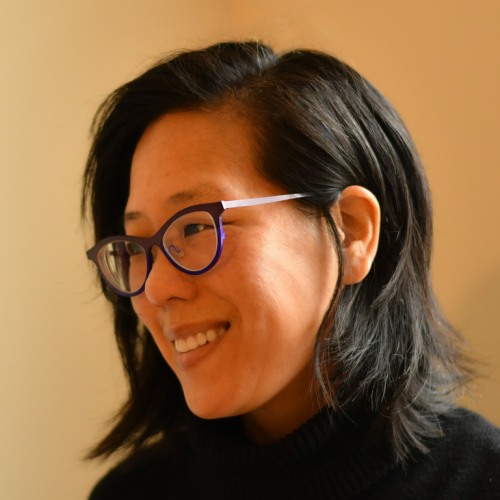
Shelley Lee
Spring 2026 Faculty Fellow, Professor of American Studies, Professor of HistoryShelley Lee is W. Duncan MacMillan II Professor of American Studies, History, and Humanities and an affiliate of Urban Studies. Her scholarship focuses on Asian American history, immigration, race relations, and American cities in 20th-century America. Before joining Brown University in 2022, she served as Professor and Chair of Comparative American Studies at Oberlin College. She is the author of several books, including Koreatown, Los Angeles: Race, Immigration, and the “American Dream” (Stanford University Press, 2022), A New History of Asian America (Routledge, 2013), and Claiming the Oriental Gateway: Prewar Seattle and Japanese America (Temple University Press, 2011). Her work has been featured in journals such as Frontiers, Journal of Asian American Studies, and Western Historical Quarterly, as well as in outlets like Ms. Magazine and Salon. While on fellowship at the Cogut Institute, she will work on her book project, “Out of Status,” a history of “unauthorized” immigration in the United States from the 19th-century to the present that focuses on Asian migrants and serves as a critical meditation on the role of immigration bureaucracy in American life and global geopolitics.
-
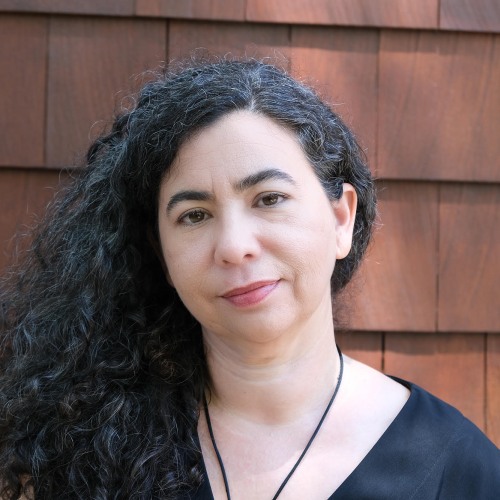
Gretel Rodríguez
Spring 2026 Faculty Fellow, Assistant Professor of History of Art and ArchitectureGretel Rodríguez is Assistant Professor in the Department of the History of Art and Architecture, where she specializes in the art, architecture, and archaeology of the ancient Roman Empire. Her work investigates the relationship between art and society, exploring issues of viewership, identity, and acculturation in relation to ancient artistic production. Her publications deal with Roman honorific architecture, the iconography of captives on public monuments, painted ceramics in the Greek colonies of Magna Graecia, and, recently, the architecture and material culture of water sanctuaries throughout the Mediterranean world, which is the project she will be developing as a Cogut Faculty Fellow. Her secondary specialization is in the art and architecture of ancient Mesoamerica. She has conducted research in Rome, the Bay of Naples, Southern France, and in Chiapas, Mexico. Her work has been published in the American Journal of Archaeology, RES Anthropology and Aesthetics, and the Theoretical Roman Archaeology Journal.